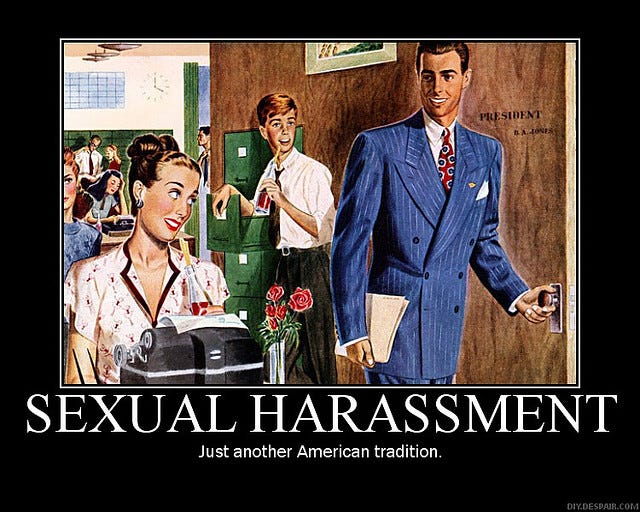
A request from House Chief of Staff Terry Pfaff for lawmakers to acknowledge receipt of the legislature’s anti-harassment and non-discrimination policy produced a flood of angry email from House members who denounced the policy as an unconstitutional attempt “to stifle debate and silence legislators.”
The nine-page Policy Against Sexual and Other Unlawful Harassment and Discrimination, approved by the Joint Committee on Legislative Facilities earlier this month, describes a commitment to create and maintain a work environment “in which all legislative employees and elected members are free from intimidation, hostility or other offenses that might interfere with work performance.”
Examples of acts prohibited by the new policy include “conduct or comments that threaten physical violence; offensive, unsolicited remarks; unwelcome gestures or physical contact…; display or circulation of degrading written or electronic materials, cartoons or images; and verbal abuse or insults.”
‘Political Correctness gone wrong’
“This is Political Correctness gone wrong,” Rep. John Burt (R-Goffstown) wrote in an email to fellow lawmakers. “I am offended when members lie on the House floor but I want to hear those lies so I can then make a vote based on the true speech of the member,” he explained. “If they are not allowed to speak their minds, that will not be good for the citizens of NH, the people that elected me and you.”
Burt urged House members not to sign the document acknowledging they have received and read the policy. In a series of email replies, obtained by Miscellany Blue, a number of lawmakers signaled they will comply with his request.
“I will not be signing the policy letter that steps on Freedom of Speech,“ answered Rep. Al Baldasaro (R-Londonderry) who was recently accused of harassment in media reports describing his exchange with Rep. Amanda Bouldin (D-Manchester) over legislation to ban female toplessness. “This is a backdoor way to stifle debate and silence legislators,” he wrote.
“Since when is the Speaker or his Chief of Staff the King of laws that would potentially restrict legislative debate?” Baldasaro asked. “This rule not only violates that Freedom of Speech, but also adds a unconstitutional condition to an elected position.”
‘Maybe we should all sign our name as Adolf’
“How can a person be held responsible for another person’s reaction to a comment? asked Rep. Victoria Sullivan (R-Manchester), who had also complained about media attention to the “Nipplegate” controversy. “Who among us has not said something innocently only to have it be taken the wrong way?” she asked. “I will not be signing this.”
Rep. Warren Groen (R-Rochester), best known for invoking abortion in a House speech opposing legislation to honor the red-tailed hawk – while the fourth-graders who championed the bill looked on, lambasted the policy (but then refrained from writing the word “phallic.”) “Imagine what could happen to John Burt if someone went off on the hot dog as a _______ symbol?” Groen wrote. “Maybe we should all sign our name as Adolf and hand them in?”
The flood of objections continued. Free Stater Rep. Dan McGuire (R-Epsom) warned of “possible unintended consequences.” Rep. Peter Leishman (D-Peterborough), the lone Democrat to express opposition, called the policy “completely unnecessary and dangerous.” Rep. Jordan Ulery (R-Hudson) chimed in, “We make our rules, we are not dictated to… Feelings get hurt, get over it.”
The Speaker responds
Finally, House Speaker Shawn Jasper stepped in to quell the storm. “I am not even sure where to begin…” he wrote. “This policy does not and cannot apply to speeches made on the floor of the House or Senate. The only reason that members are asked to sign the policy is to show that each of you have read it … not to suggest that you agree with the policy or that you even intend to comply with it.”
The policy, Jasper explained, will help limit the state’s liability if a harassment or discrimination claim is filed against the General Court. “[W]e have now shown that we have a policy in place and have asked our members to acknowledge that they received and read of the policy,” he wrote. "As elected officials we should all want to help protect the state from liability, when the state is not at fault.”
“It would be unconscionable for us not to have a policy designed to protect our employees and members from illegal behavior in the work place,” Jasper wrote.


